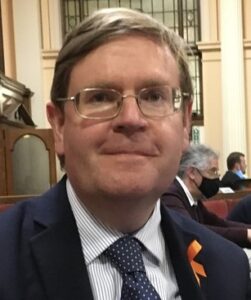Hard financial choices are on the cards as Brighton and Hove City Council’s spending must break even this year, councillors have been warned.
The council’s chief financial officer Nigel Manvell spoke about the stark situation at the Strategy, Finance and City Regeneration Committee meeting on Thursday (5 October).
The forecast overspend in the current financial year is lower than projected in July when the council’s black hole exceeded £11 million. It is now £2.1 million lower than then.
Mr Manvell said that this time last year the projected deficit stood at £13 million which was brought down by £10 million by the end of the financial year.
He said that inflation had affected budgets across the council – and nationally negotiated pay awards were also higher than expected.
Spending controls and a jobs freeze were brought in earlier this year to try to make savings.
Mr Manvell said: “We are approaching a critical point in the year when some more difficult decisions may need to be made.
“We need to watch the trends carefully. We need to see over the next month or two if the current downward trend continues to significantly improve the forecast. If that position stalls or worsens, we may need to look at some tougher choices.”
Mr Manvell’s team is already preparing for the worst-case scenario by looking at how departments could cut spending from non-statutory and non-critical services,
He said: “It’s not something any of us want to do. We look for financial management actions first to see if those can bring the position back down.”
The committee will have to look at those potential “hard choices” in December when they are due to review spending up to the end of next month compared with the forecasts.
Labour councillor Jacob Taylor, who leads on finance, said that things were moving in the right direction but there was still a long way to go.
He said: “There are many local authorities in the country that are in similarly difficult positions, we would argue, because Conservative governments have continually underfunded local government.
“Every day we see that in our communities the impact of that – and we’re going to see more of it to come as we have to make difficult choices.”
Councillor Taylor said that the council needed to consider reducing its spending as there was not enough in the reserves – the council’s savings – to plug any gap.
Green councillor Sue Shanks said that the council was often in deficit in the first half of the financial year including when Labour was previously in charge.
Councillor Shanks said: “Obviously, it is regrettable we have budget gaps. I would remind you that the budget was approved.
“It’s constantly called a ‘Green black hole’ but it was an amended budget, largely through Labour amendments adding to the cost of things, which we had to agree, partly because we were working together and we needed to get the budget agreed.”

Conservative leader Alistair McNair said: “We hear that last year it was worse. I’m not saying it’s good but it was worse last year and the Greens somehow managed to sort it out so we’ll see how well it happens this year.”
Councillor McNair asked if Labour would consider reducing parking permit charges because income from permits had fallen as fewer households bought them for second or third cars.

The Labour leader of the council Bella Sankey said that her team was carrying out a review of parking to look at the issue “in the round”.
She said: “We are well aware of the high cost of parking, particularly in the city centre, and how costs have gone up in recent years.
“We would love to be able to look at that and make things easier in a ‘cost of living crisis’ but we need to look at what this review comes back with to make sure we’re not undermining the necessary income we need to bring in.”
Earlier, Councillor Sankey said that the Labour group were talking with staff and unions to try to protect frontline services and support the priorities in the council plan.
Credit: Source link













































